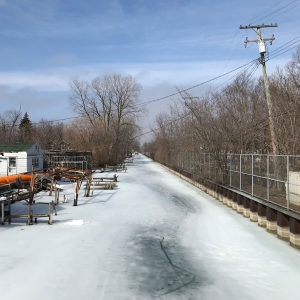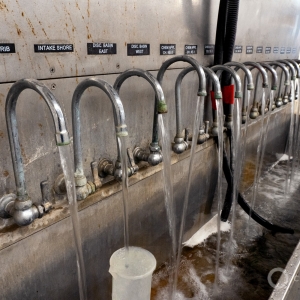The Stream, March 31, 2021: New Study Reveals Pesticide Global Pollution Risk On Agricultural Land
YOUR GLOBAL RUNDOWN
- A new study finds a significant portion of the world’s agricultural land is at risk of pesticide pollution.
- A Canadian coal company pays a $60 million fine for water pollution in Montana and Idaho.
- Record floods in Australia take a toll on the country’s already hurting tourism industry.
- A new study finds that groundwater contamination can have adverse effects on the world’s oceans.
Egypt’s president makes his strongest condemnation yet of Ethiopia’s plans to fill a controversial dam.
“No one can take a drop of water from Egypt because this is a red line.” – Egyptian President Abdel-Fattah El-Sisi. Bloomberg reports that El-Sisi warned Ethiopia against reducing water flows to Egypt, saying it could destabilize the entire region. His remarks come as Ethiopia plans to move forward in filling the controversial Grand Ethiopian Renaissance Dam.
IN RECENT WATER NEWS
In Flooded Michigan Neighborhoods, Who Should Pay For Sea Walls?
As the Great Lakes begin their seasonal swell, it’s too early to say whether this summer will bring more of the same. But over time, scientists expect severe floods to become increasingly common as climate change alters rainfall and temperature patterns in Michigan, bringing more intense periods of rain and drought and causing Great Lakes water levels to yo-yo more dramatically.
That leaves Michigan residents with two options: Reinforce their properties to prevent the next flood, or live with the consequences.
It’s a conundrum that communities from urban southeast Michigan to the ritzy vacation enclaves of west Michigan will encounter with increasing frequency: Who should pay for climate adaptation?
In Case You Missed It:
HotSpots H2O: Homeless San Franciscans Are In A Clean Water Crisis – People living on San Francisco’s streets and in its parks face daily barriers to finding and accessing clean water, according to a report released earlier this month by the nonprofit organization, Coalition on Homelessness.
What’s Up With Water – March 29, 2021 – This week’s episode covers a campaign to stop hydropower development on an Albanian River and meetings between India and Pakistan to resolve issues under the Indus Waters Treaty.
New Research Finds One-Third of Global Agricultural Land at ‘High Risk’ of Pesticide Pollution
A new study finds that one-third of global agricultural land is at “high risk” of pesticide pollution, Phys.org reports. The research modeled pollution risks across 168 countries and found “widespread” threats from lingering chemical residues that have the potential to leach into water supplies and harm biodiversity. The research, which broke down risks in terms of environment, found that surface water is the most vulnerable to pollution because run-off can pollute waterways.
- Why it matters: Farms are one of the world’s leading causes of water pollution. The issue has caused a deep divide between the agricultural industry and environmentalists throughout the United States, both nationally and at a community level.
TODAY’S TOP WATER STORIES, TOLD IN NUMBERS
$60 MILLION
The Canadian coal company Teck Resources Limited paid $60 million after pleading guilty to discharging pollutants that killed most fish in nearby waters in Montana and Idaho. The Associated Press reports that investigators discovered hazardous amounts of selenium and calcite in the Fording River and they linked fish damage in Montana’s Koocanusa Reservoir and Kootenai River to selenium contamination. The fine is 10 times larger than any previous penalty under Canada’s Fisheries Act.
A$61 BILLION ($47 BILLION)
After the Covid-19 pandemic slowed Australia’s tourism industry early last year, recent historic flooding has become another barrier to reopening the sector. Reuters reports that the industry generated nearly A$61 billion ($47 billion) in 2018-19. The owner of one camping and water skiing park said the flooding has impacted her business significantly, as the park now faces a six-month cleanup that won’t be covered by insurance.
ON THE RADAR
A new study in Nature Reviews Earth & Environment found that groundwater discharge is a major source of nitrogen and phosphorous to the ocean at many locations. Although nitrogen in groundwater may take decades to reach the ocean, it can increase algal biomass and decrease marine biodiversity when released.
Jane is a Communications Associate for Circle of Blue. She writes The Stream and has covered domestic and international water issues for Circle of Blue. She is a recent graduate of Grand Valley State University, where she studied Multimedia Journalism and Women, Gender and Sexuality Studies. During her time at Grand Valley, she was the host of the Community Service Learning Center podcast Be the Change. Currently based in Grand Rapids, Michigan, Jane enjoys listening to music, reading and spending time outdoors.







Leave a Reply
Want to join the discussion?Feel free to contribute!